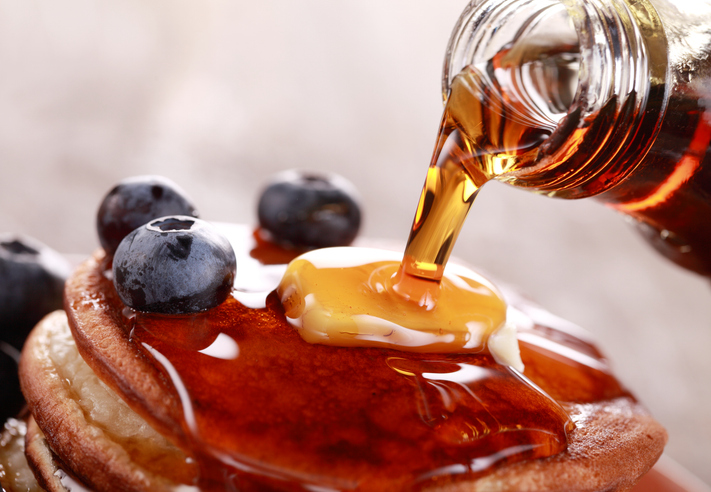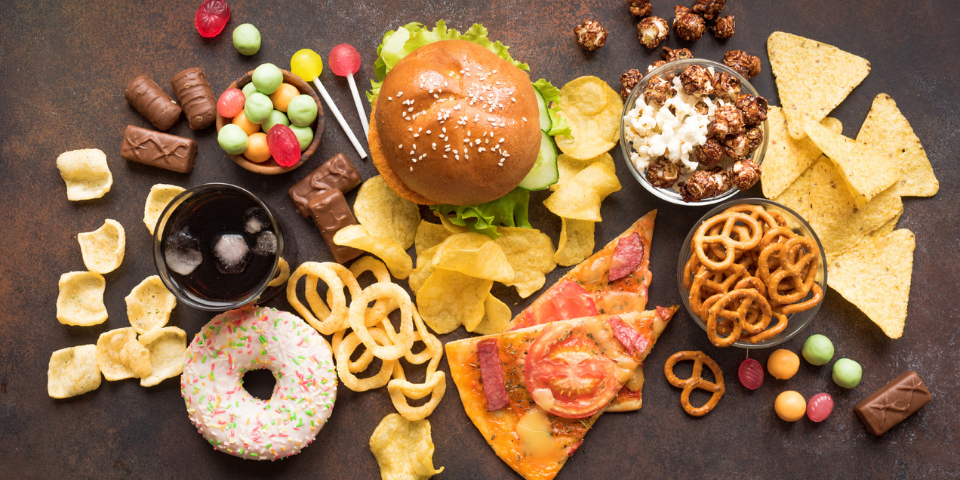For people concerned about blood sugar spikes, simply eating can feel like trying to defuse a bomb: Make the wrong food choice and serum glucose can go boom.
And they’re not just diabetics: High glucose levels, observed even in “healthy” people, can cause serious issues and cost you insulin sensitivity over time. The reasons for this aren’t fully understood, but they can be related to stress, diet, problems sleeping, inactivity, and more.
When you know which foods send blood sugar soaring, however, it’s easier to minimize glucose spikes. This article will explore five categories of foods that should be consumed in moderation — if at all — and how they impact blood sugar.
Supercharge your body’s ability to burn fat and reduce glucose spikes with Belle Vitale, a complete hormone health solution. Learn more
here.
What Causes Blood Sugar Spikes?
Spikes in blood glucose result primarily from the consumption of carbohydrates, though slight changes in blood sugar can come from eating almost anything.
When carbs enter the digestive system, they’re broken down and their sugar is absorbed, triggering the release of insulin, which then tells that sugar — now in the form of glucose — where to go. A certain amount of this post-meal is normal.
But too much sugar can trigger too much insulin, which over time can stop answering sugar’s calls, loading the bloodstream with more glucose than the body can metabolize. The result can be weight gain, chronic fatigue, health issues, and more.
Cortisol and blood sugar
Blood sugar spikes can also result from stress, which triggers the release of cortisol, a hormone whose job is to deploy glucose to power you through tense situations.
Constant stress can place the body in a constant state of cortisol release, which can mean a constant state of elevated blood glucose. Dietary strategies are central to not only helping minimize blood sugar spikes, but also helping lower cortisol naturally.
5 Foods That Increase Blood Sugar

As important as knowing what to eat to maintain healthy blood sugar is what to limit or avoid. Helping us make those choices is the glycemic index, a scoring system for how likely different foods are to raise serum (blood) glucose.
The glycemic index ranks foods on a scale of 0 to 100, with pure glucose clocking in at 100. A GI score of 55 or lower is considered low and, therefore, unlikely to seriously spike blood sugar. Here are the five foods likeliest to exceed that threshold.
1. Caloric sweeteners
Added sugar goes by dozens of names and, by its very nature, will have an outsize effect on blood glucose. Its most popular forms include:
- Syrup
- Jelly
- Honey
- Caramel
- Molasses
- Cane juice
- Raw, brown, or granulated sugar
The sugar in most nutritive sweeteners consists of glucose, fructose, or a combination of both. Complicating matters, glucose is the highest-scoring food on the glycemic index, while fructose scarcely spikes blood sugar at all. But getting too much of either can be detrimental for your health.
Does honey spike blood sugar?
There’s debate about the impact of honey on blood sugar, with some studies finding it may have a moderating effect, and others finding the evidence inconclusive. The National Institutes of Health scores honey 70 on the glycemic index, so the best course of action — as always — is to practice moderation in consuming honey or any other caloric sweetener.
Does maple syrup spike blood sugar?

Due to its fructose content, pure Canadian maple syrup sneaks in just under the threshold for low-glycemic foods at 54. It’s calorically dense, though, so a little can go a long way toward lifting blood sugar levels. “Maple-flavored” syrup, on the other hand, is typically processed using corn syrup and comes at a higher glycemic cost.
Does agave spike blood sugar?
Consisting mostly of fructose, the sugar in agave syrup (or nectar) doesn’t spike blood glucose as readily in the short term as many other caloric sweeteners. However, some believe it’s actually more detrimental than plain sugar overall.
That’s because fructose, unlike glucose, is metabolized in the liver, which can get overloaded with time. When that happens, the liver converts excess fructose into fat, potentially leading to more chronic increases in blood sugar. This is why it’s important to get your fruit sugar from whole fruit, which contains fiber that binds to fructose, slowing its absorption.
Does coconut sugar spike blood sugar?
Coconut sugar, which is derived from the sap of the coconut palm as opposed to the fruit itself, is touted as a better alternative to table sugar. That’s due to its substantial quantity of inulin, a type of soluble fiber that makes acute blood sugar spikes less likely by slowing absorption. But at the end of the day, coconut sugar is still sugar and should be used sparingly.
Does stevia spike blood sugar?

Pure stevia is a natural sugar substitute containing compounds that aren’t absorbed by the body, so consuming it alone does not affect blood sugar. That said, products containing stevia may also have additives that can raise serum glucose, so it’s important to check nutrition labels for added sugars.
Does monk fruit spike blood sugar?
Monk fruit, also known as luo han guo, isn’t recognized as a carbohydrate by the body and, as a result, doesn’t spike blood sugar. As with stevia, it’s important to make sure monk fruit isn’t eclipsed on the ingredient list by other nutritive sweeteners.
Does sucralose spike blood sugar?
Also known by the commercial name Splenda, the sugar substitute sucralose hasn’t been found to elevate blood sugar per se. However, studies suggest it may impair the glycemic response via impacts on the microbiome, and warrants further research.
Does aspartame spike blood sugar?
Given a potency about 200 times sweeter than sugar, aspartame is used in such small amounts it doesn’t directly contribute much to calorie or blood sugar counts.
5 Foods That Can Increase Blood Sugar Levels
While there are many factors that can impact blood sugar levels, including diet, certain foods have been found to have a significant effect on blood glucose. Here are five common culprits:
1. Erythritol
Erythritol is a sugar substitute that does not contain any calories and does not affect blood sugar levels. However, consuming this sugar substitute may lead to weight gain, which can ultimately impair glucose tolerance.
Does erythritol spike blood sugar?
Erythritol is a sugar alcohol that does not impact blood sugar levels. Unlike other sugar alcohols, it is associated with fewer digestive complications.
2. Sweetened Beverages
Sugary beverages like soda, juice, coffee drinks, and energy drinks can significantly increase blood glucose and insulin concentrations. It's best to avoid consuming these beverages as they provide little nutritional value.
Does caffeine spike blood sugar?
Research on the impact of caffeine on blood sugar levels varies. It's recommended to moderate caffeine consumption and avoid adding sweeteners to coffee.
3. Ultra-Processed Foods
Ultra-processed foods, such as packaged snacks, ice cream, candy, and ready-to-heat products, often contain added sugar that can raise blood glucose levels. Consuming these foods regularly can increase the risk of type 2 diabetes.
4. White Foods
Refined carbohydrates like white flour, bread, rice, pasta, and sweetened cereals can lead to blood sugar spikes. These foods are low in fiber and often contain added sugar, making them detrimental to blood sugar control.
5. Alcohol
Alcohol can impact blood sugar levels depending on the type consumed and its carbohydrate content. It's important to be mindful of the type of alcohol consumed and to avoid drinking on an empty stomach.
Foods That Help Minimize Blood Sugar Spikes
Combining fiber-rich foods, lean proteins, and healthy fats can help slow the absorption of glucose into the bloodstream and reduce blood sugar fluctuations.
Fiber
Incorporating fiber-rich, plant-based foods into your diet can help regulate blood sugar levels by slowing down glucose absorption.
Protein
Adding lean proteins like fish, turkey, chicken, and Greek yogurt can promote fullness and prevent overeating, helping to stabilize blood sugar levels.
Healthy Fats
Including healthy fats from sources like fatty fish, avocado, nuts, seeds, and olive oil can further slow down the absorption of sugar from carbohydrates, supporting healthy blood sugar levels.
following sentence: "The cat sat lazily in the sun, soaking up the warmth."
"The lazy cat basked in the sun, enjoying the warmth."



